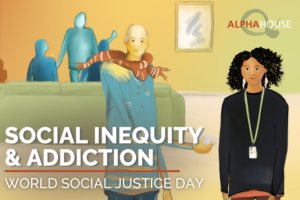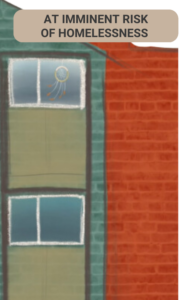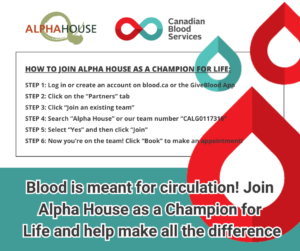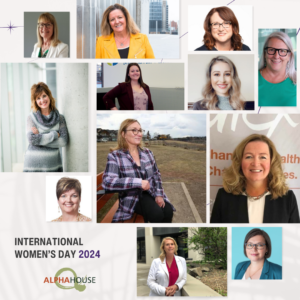World Social Justice Day 2025
Shaundra Bruvall | February 20, 2025
Talking Social Inequalities around Addiction

The observance of World Social Justice Day offers us a chance to reflect on the institutional inequalities that prevent people from accessing basic needs like food, water and housing, and to look back on the hard work of previous generations of activists that got us where we are today. For Alpha House, working with individuals experiencing active addiction, we see firsthand some of the barriers and inequities that they face. We also see the pushback attached to efforts to challenge these inequities. Public sympathy for addiction is low and drug policy often lags behind the needs of the population we serve. Globally, we are facing unprecedented challenges related to social inequalities and overall economic wellbeing particularly for already stigmatized and underserved populations. Today we’re focusing on the history and current situation around harm reduction and how it has worked to bring those struggling with addiction towards improved wellbeing.
Harm Reduction formed as a result of grassroots advocacy among communities of people who have used drugs or know someone who is/has experienced challenges with substance use, and is a movement that has been foundational to Alpha House’s work in the community.
Harm Reduction found its roots in the latter half of the 1900s. The modern harm reduction movement started in the 1980s as a response to the HIV-AIDS crisis, most often attributed to the needle exchange programs put in place to mitigate the spread of disease during that time. These needle exchange programs weren’t always government supported, rather, the public took it upon themselves to create safe injection sites to tackle the situation while the government lagged behind in policy. Despite the lack of support from policymakers and law enforcement, needle exchange programs demonstrated the benefits it would bring to the public’s health, and were the stepping stones for many amazing programs we have today.
Alpha House also found its footing in the 1980s, with our shelter and detox services opening in 1982 as a pivotal innovation for street-involved individuals publicly experiencing addictions to alcohol or other drugs. Our agency began as, and continues to be, a safe and caring environment for individuals experiencing homelessness and active addiction, offering the community an alternative to criminal justice and law enforcement practices like holding cells.
Harm Reduction Practices
North America’s first legal supervised consumption site, Insite, opened in Downtown’s Vancouver’s Eastside in 2003 in response to drug prevalence increasing across the country and, following the success of Insite, Supervised Consumption Sites (SCS) began opening in cities like Calgary, Toronto, and Edmonton across Canada. Supervised consumption sites not only prevent overdoses, but act as a point of connection for caseworkers to connect with clients on key points like housing, healthcare, and addiction treatment services.
In 2005, 2 years after Insite opened in Downtown Vancouver, Alpha House launched our pilot program, the DOAP (Downtown Outreach Addiction Partnership) Team (now known as the HELP Team), a 24/7 outreach program dedicated to assisting the unhoused population in Calgary who are in active addiction. Working closely with Emergency Medical Services and the Calgary Police Service to reduce unnecessary and inappropriate uses of emergency systems, and to connect individuals with the programs and services that they need to improve their well-being. A Social Return on Investment (SROI) study was conducted in 2013 and found that for every dollar invested into this program, there is a social return of $9.43.
Around this time, harm reduction supply also became more widespread in an attempt to reduce disease related to substance use. Easier access to supplies like sterile needles, bubbles, and stems reduce the risk of overdose, infections, and bloodborne disease for individuals who would have already engaged in substance use with supplies that would have already been used or unsanitary due to other reasons.
Despite the improvements seen since the inception of safe consumption sites, they still remain highly contested and debated to this day. Alberta and Ontario are among the provinces that report the highest number of opioid-related deaths, highlighting the need for advocacy and policy change in this space.
Safe Supply and Decriminalization
As the drug crisis continued to spiral in North America, another harm reduction strategy entered the conversation. Safe supply programs were introduced to provide regulated alternatives to street drugs, thereby reducing overdose deaths in the community. Safe supply programs generally operated through clinics, pharmacies, and community health organizations and offered prescription drugs like hydromorphone to those at a high risk of overdose. Providing a safer alternative to unregulated street drugs, safe supply programs have shown, through research, that individuals that make use of these programs experience fewer hospitalizations, reduced involvement in the criminal justice system, and an overall improvement in their wellbeing.
The distribution of naloxone kits also started to pick up steam— a life saving medication that reverses opioid overdoses, which has now become readily available through pharmacies, outreach programs, and emergency services. Being able to hand out naloxone proactively to those who might experience or witness an overdose was a major milestone in the sector.
Decades of advocacy against the criminalization of drugs takes us to 2023, where British Columbia launched a three-year pilot program that temporarily decriminalizes small amounts of select illicit drugs in an attempt to shift the focus from punishment to support, a milestone that many advocates in the sector have fought for[1].
Where We Are Today
Despite the progress we’ve seen in harm reduction advocacy over the last half-century, there are still challenges to overcome. Fentanyl entered Canada’s illicit drug market in the early 2010s, a synthetic opioid, promising effects up to 100 times that of other opioids like morphine or heroin[2]. Based on numbers from January 2024 – June 2024, most accidental apparent opioid toxicity deaths involved fentanyl at 79%, with 21 deaths per day on average[3]. Some of the factors that play into the current drug crisis in Canada:
- Due to its high potency, even small amounts of this drug can prove fatal; illicit drug dealers have taken to mixing in Fentanyl into other substances like heroin to “increase the effects”, thereby contaminating the drug supply and causing many fatalities as a result.
- Extended use of opioids, like fentanyl, can lead to an individual developing tolerance, meaning a higher and/or more frequent dose is required to feel the same effects. Stopping the use of opioids results in the individual’s tolerance for the drug to drop rapidly, meaning that taking a similar dosage to what was previously used can prove to be fatal.
- Stigma towards substance use disorders only exacerbates the problem, discouraging substance users from seeking help and being open about their ongoing addiction challenges.
From the late 2000’s to now, Alpha House has focused on strengthening our housing and outreach programs to recognize some of the main gaps in reducing homelessness, helping individuals manage and overcome addiction, and increasing social equity for historically underserved or highly stigmatized populations. We’ve:
- Opened 7 Supportive Housing buildings, operating 161 housing units for individuals exiting homelessness and looking to find long-term stability
- Piloted a Scattered-Site housing program which now manages 180 market rental units for low acuity individuals
- Launched a Needle Response team that works to clean up needle debris around the city, supporting safe and clean communities while reducing stigma around public substance use
- Expanded the Encampment program to provide rapid response to unhoused individuals who lack emergency shelter access
All of our programs and services strive to work within harm reduction practices and, subsequently, housing first, building off of all of the hard work and advocacy done in the past to bring these ideas to the forefront of the sector. According to the National Harm Reduction Coalition, harm reduction is a flexible practice where interventions and policies are designed to match individual and community needs, meaning that there is no universal definition for harm reduction, however, there are core tenants that guide any harm reduction practices:
- Patient Centered Care
- Judgment Free Care
- Sharing the Voices of Those with Lived Experience
- Advocacy
These core tenants are inherently linked with advocacy and support for equity deserving groups, providing compassionate supports for individuals who need it and advocating for systematic change for current and future generations. Instead of punishing those struggling with substance use, harm reduction seeks to support them in improving their wellbeing while respecting their rights as an individual to make their own choices. In an ideal world, following the tenants of harm reduction, individuals would not be denied supports like housing, financial help, and healthcare due to their substance use or housing status.
For homeless serving agencies, like Alpha House, harm reduction is a philosophy that shapes how our services are delivered. At our core, we look to create opportunities for our clients to engage with healthcare and mental health supports with the end goal of stable housing. Harm reduction can continue to evolve to meet the everchanging needs of modern-day society, but we as a population, policymakers, and law enforcement have to be willing to adapt in a way where we can fill these gaps in the system and support our most vulnerable. Further work is needed to address the contaminated drug supply, lack of housing, and the lack of access to appropriate services and supports for individuals in active addiction before we can see this crisis managed.
[1] https://bmcpublichealth.biomedcentral.com/articles/10.1186/s12889-024-20336-9#:~:text=Background,g%20of%20select%20illicit%20drugs.
[2] https://myhealth.alberta.ca/alberta/pages/fentanyl-frequently-asked-questions.aspx
[3] https://health-infobase.canada.ca/substance-related-harms/opioids-stimulants/







